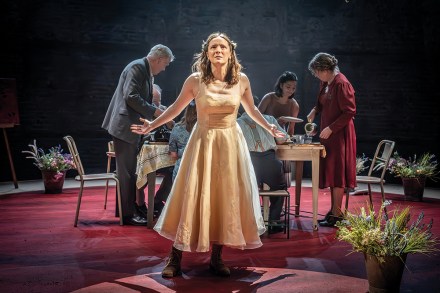Almeida’s Look Back in Anger is flawless
Strange title, Juno and the Paycock. Sean O’Casey’s family drama is about a hard-pressed Dublin matriarch, Juno, whose husband Jack ‘the paycock’ Boyle refuses to support his family and spends all day drinking with his penniless cronies. The producers have labelled the show an ‘Irish masterpiece’, which raises the bar. Mark Rylance plays Jack as a stammering, dissembling, wisecracking malingerer and he’s terrific value on stage, of course, but he seems detached from the material. He performs like a star comedian stranded in a boring classic against his will and he pokes fun at the script rather than immersing himself in the story. His halting, semi-improvised delivery relies on the




















